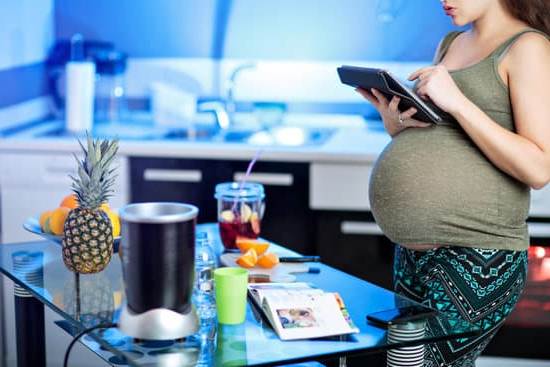When is the best time to test for pregnancy? The timing of a pregnancy test can greatly impact its accuracy, making it crucial for individuals to understand the optimal time to take one.
From understanding the menstrual cycle to recognizing early pregnancy symptoms and knowing the different types of tests available, knowing when to test for pregnancy is essential for accurate results. In this article, we will delve into the intricacies of pregnancy testing, including when it’s best to take a home pregnancy test and when it’s necessary to visit a doctor for professional testing.
Pregnancy testing is a crucial step for individuals who suspect they may be pregnant. By defining pregnancy testing and emphasizing the importance of knowing when to test for pregnancy, this introductory section sets the stage for an in-depth exploration of the topic. Throughout this article, we will provide comprehensive information on each aspect related to pregnancy testing in order to help individuals make informed decisions and ensure accurate results.
Understanding the menstrual cycle plays a pivotal role in determining the best time to test for pregnancy. This section entails an explanation of the menstrual cycle and ovulation, as well as how hormone levels change throughout the cycle.
By gaining insight into these biological processes, individuals can better grasp the ideal timing for taking a pregnancy test in order to maximize its accuracy. Additionally, we will explore common early pregnancy symptoms and their onset, along with different types of pregnancy tests available and their respective pros and cons in order to guide individuals through this significant process.
Understanding the Menstrual Cycle
The menstrual cycle is an essential aspect of a woman’s reproductive health and is crucial in determining the best time to test for pregnancy. Understanding the menstrual cycle involves knowing the key phases and hormonal changes that occur throughout the month. The menstrual cycle typically lasts about 28 days, although it can range from 21 to 35 days in adult women. It involves the interplay of hormones that prepare a woman’s body for pregnancy.
The first phase of the menstrual cycle is menstruation, where a woman sheds the lining of her uterus if she did not conceive in the previous cycle. Following menstruation, hormonal changes cause an egg to mature in one of the ovaries during the follicular phase.
Ovulation then occurs around day 14 of the cycle, where the mature egg is released from the ovary and moves into the fallopian tube, ready for fertilization. This phase marks a crucial time for pregnancy testing as it indicates peak fertility.
After ovulation, if fertilization does not occur, hormone levels drop and the luteal phase begins. The luteal phase ends with menstruation, starting a new menstrual cycle. Understanding these phases is vital in determining when is the best time to test for pregnancy, as it helps identify peak fertility and potential early pregnancy symptoms.
| Statistic | Data |
|---|---|
| Median length of menstrual cycle | 28 days |
| Range of typical menstrual cycles | 21-35 days |
Now that we have discussed understanding of how one’s body prepares for pregnancy during a process called menstruation, let us move on to looking at common signs and symptoms which also play roles in determining common signs which can provide knowledge about whether or not you might be pregnant.
Early Pregnancy Symptoms
Common Signs of Early Pregnancy
One of the most common early symptoms of pregnancy is a missed period. However, there are several other symptoms that may indicate that a woman is pregnant. These include nausea, fatigue, breast tenderness, frequent urination, and food aversions. Some women may also experience mild cramping or spotting, known as implantation bleeding, when the fertilized egg attaches to the uterine lining.
When and How These Symptoms Start to Appear
Early pregnancy symptoms can start as soon as one week after conception. However, some women may not notice any symptoms until they are a few weeks into their pregnancy. The timeline for when these symptoms appear and their severity can vary from woman to woman. It is important to note that these symptoms can also be caused by other factors such as stress or illness, so it is essential to take a pregnancy test for confirmation.
Home Pregnancy Test
When it comes to testing for pregnancy at home, timing is crucial for accurate results. The best time to take a home pregnancy test is after you have missed your period. Testing too early can yield a false negative result and lead to confusion and disappointment. It’s important to follow the instructions on the test kit carefully and use it with your first-morning urine for the best chance of an accurate result.
Understanding the common early symptoms of pregnancy and being aware of the best time to take a home pregnancy test can help individuals determine if they are expecting a child accurately. If you suspect you may be pregnant but receive negative results on a home test, it’s best to consult with a healthcare provider for further evaluation.
Types of Pregnancy Tests
Overview of Different Pregnancy Testing Options
There are various types of pregnancy tests available in the market today. The most common ones include home pregnancy tests, blood tests, and urine tests. Home pregnancy tests are widely accessible and can be bought over-the-counter at pharmacies or online stores.
These tests work by detecting the level of human chorionic gonadotropin (hCG) in a woman’s urine, which is a hormone produced during pregnancy. On the other hand, blood tests, also known as quantitative hCG tests, are conducted at a healthcare provider’s office and can detect pregnancy earlier than urine tests. Blood tests not only measure the presence of hCG but also determine the exact amount present in the blood.
Pros and Cons of Each Type of Test
Home pregnancy tests are convenient, affordable, and can be done privately in the comfort of one’s home. However, they may provide more inaccurate results compared to blood tests if not used correctly or used too early in the pregnancy. Blood tests, while more accurate than home pregnancy tests, require a visit to a healthcare provider’s office and tend to be more expensive.
Additionally, it may take longer to receive results from a blood test compared to a home pregnancy test which provides instant results. Each type of test has its own advantages and disadvantages depending on an individual’s preferences and circumstances.
When Is the Best Time to Take Each Type of Pregnancy Test
The best time to test for pregnancy varies depending on the type of test being taken. For home pregnancy tests that detect hCG levels in urine, it is recommended to wait until after your missed period for accurate results. Testing too early could lead to false-negative results due to low levels of hCG in the body during early stages of pregnancy.
On the other hand, blood tests can detect hCG levels as early as 6-8 days after ovulation and provide more accurate results even before a missed period occurs. Ultimately, determining which type of test and when to take them depends on an individual’s specific situation and needs.
By understanding the different types of pregnancy tests available and their respective pros and cons, women can make informed decisions when it comes to testing for pregnancy based on their unique circumstances.
When to Take a Home Pregnancy Test
When trying to determine if you are pregnant, it is important to understand the best time to take a home pregnancy test. The timing of when you take the test can greatly impact its accuracy. In order to ensure the most reliable results, it is essential to know when your body is most likely to produce a positive result.
The best time to take a home pregnancy test is after you have missed your period. This is typically about two weeks after ovulation and fertilization. By waiting until after your missed period, you are allowing enough time for the hormone hCG (human chorionic gonadotropin) to build up in your system if you are pregnant. Testing too early can result in a false negative, as the levels of hCG may not be high enough to be detected by the test.
It’s also important to take the home pregnancy test first thing in the morning when your urine is most concentrated. This can increase the likelihood of an accurate result. However, if you cannot wait until morning, it’s crucial to avoid excessive fluid intake for at least two hours before testing in order to prevent diluting your urine.
| Best Time | Important Considerations |
|---|---|
| After missed period | Allows enough time for hCG levels to rise |
| First thing in the morning | Urine is most concentrated at this time |
| Avoid excessive fluid intake | To prevent dilution of urine |
When to Visit a Doctor for a Pregnancy Test
It is important to know when to seek professional testing for pregnancy. While home pregnancy tests are easily accessible, there are certain situations where a visit to the doctor is necessary. Below are some signs that indicate it’s time to visit a healthcare provider for a pregnancy test:
- Irregular menstrual cycle: If you have an irregular menstrual cycle or have been experiencing significant changes in your cycle, it may be best to consult a doctor for pregnancy testing.
- History of fertility issues: If you have a history of fertility issues or have been trying to conceive without success, it is advisable to seek medical guidance for pregnancy testing.
- Unusual early pregnancy symptoms: If you are experiencing unusual or severe early pregnancy symptoms, such as extreme pain or bleeding, it is crucial to consult a healthcare provider for proper evaluation and testing.
Visiting a doctor for a pregnancy test offers several benefits. Healthcare providers can perform more sensitive and accurate tests, such as blood tests, which can detect pregnancy earlier than most home pregnancy tests. Additionally, doctors can provide necessary guidance and support throughout the testing process and offer recommendations for prenatal care if the test results confirm pregnancy.
Overall, it is essential to pay attention to your body and seek medical attention when appropriate. Consulting with a doctor for pregnancy testing can provide peace of mind and ensure that you receive proper care and support during this important time in your life.
Factors Affecting Pregnancy Test Accuracy
When it comes to taking a pregnancy test, there are several factors that can affect the accuracy of the results. It’s important to be aware of these factors in order to ensure that you get the most reliable outcome possible. Here are some key points to consider:
- Timing: The best time to test for pregnancy is usually at least a week after your missed period. Testing too early can result in a false negative, as the levels of the pregnancy hormone hCG may not be high enough to detect.
- Health Conditions: Certain health conditions, such as polycystic ovary syndrome (PCOS) and thyroid disorders, can interfere with hormone levels and affect the accuracy of pregnancy tests.
- Medications: Some medications, including fertility drugs and certain antidepressants, can potentially impact pregnancy test results. It’s important to consult with a healthcare provider if you have any concerns about how your medications may affect a pregnancy test.
When it comes to testing for pregnancy, it’s essential to be mindful of these factors and take them into consideration before deciding when and how to take a test. By being informed and prepared, individuals can maximize their chances of obtaining accurate results.
Additionally, it’s vital for those who are trying to conceive or suspect they may be pregnant to speak with a healthcare provider if they have any doubts about their results or concerns about their fertility or reproductive health. Professional guidance from a doctor or gynecologist can provide valuable support during this critical time.
Conclusion
In conclusion, understanding the best time to test for pregnancy is crucial for accurate results and peace of mind. By knowing the ins and outs of the menstrual cycle, early pregnancy symptoms, and the types of tests available, individuals can be better equipped to make informed decisions about when to test.
It is important to remember that taking a home pregnancy test too early in the cycle may result in a false negative, so waiting until after a missed period is typically recommended for the most reliable results.
For those experiencing early pregnancy symptoms or suspecting they may be pregnant, seeking professional testing from a healthcare provider may offer reassurance and support. Healthcare providers can also take into account individual factors that may affect pregnancy test accuracy, such as underlying health conditions or lifestyle habits. Additionally, their expertise can provide guidance on next steps and necessary prenatal care if a positive result is obtained.
In the end, it’s important for individuals navigating the process of pregnancy testing to know that they are not alone. Whether it’s taking a home test or visiting a doctor for confirmation, having a support system in place can make all the difference. Regardless of the outcome, knowing when to test for pregnancy can provide clarity and help individuals take control of their reproductive health with confidence.
Frequently Asked Questions
How Soon Will a Pregnancy Test Read Positive?
A pregnancy test can read positive as early as 7-10 days after conception, but it’s more accurate to wait until you miss your period or at least a week after a missed period.
When Is the Most Accurate Time to Test for Pregnancy?
The most accurate time to test for pregnancy is after you’ve missed your period. Testing too early may give a false negative result due to low levels of hCG hormone in the body.
When Is the Best Time to Take a Pregnancy Test Morning or Night?
The best time to take a pregnancy test is in the morning, as the levels of hCG hormone are most concentrated in the first morning urine. However, if testing at night, it’s important to hold your urine for several hours for an accurate result.

Welcome to my fertility blog. This is a space where I will be sharing my experiences as I navigate through the world of fertility treatments, as well as provide information and resources about fertility and pregnancy.





